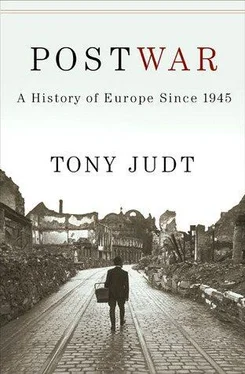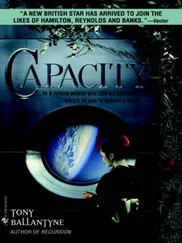PENGUIN BOOKS
Published by the Penguin Group
Penguin Group (USA) Inc., 375 Hudson Street, New York, New York 10014, U.S.A.
Penguin Group (Canada), 90 Eglinton Avenue East, Suite 700, Toronto, Ontario, Canada M4P 2Y3 (a division of Pearson Penguin Canada Inc.)
Penguin Books Ltd, 80 Strand, London WC2R 0RL, England
Penguin Ireland, 25 St Stephen’s Green, Dublin 2, Ireland (a division of Penguin Books Ltd)
Penguin Group (Australia), 250 Camberwell Road, Camberwell, Victoria 3124, Australia (a division of Pearson Australia Group Pty Ltd)
Penguin Books India Pvt Ltd, 11 Community Centre, Panchsheel Park, New Delhi - 110 017, India
Penguin Group (NZ), cnr Airborne and Rosedale Roads, Albany, Auckland 1310, New Zealand (a division of Pearson New Zealand Ltd)
Penguin Books (South Africa) (Pty) Ltd, 24 Sturdee Avenue, Rosebank, Johannesburg 2196, South Africa
Penguin Books Ltd, Registered Offices:
80 Strand, London WC2R 0RL, England
First published in the United States of America by The Penguin Press, a member of Penguin Group (USA) Inc. 2005
Published in Penguin Books 2006
Copyright © Tony Judt, 2005
All rights reserved
Map illustrations copyright © ML Design, 2005
Photograph credits appear on pages 833-34.
eISBN: 9781101379615
1. Europe—History—1945- I. Title.
D1051.J84 2005
940.55—dc22 2005052126
The scanning, uploading and distribution of this book via the Internet or via any other means without the permission of the publisher is illegal and punishable by law. Please purchase only authorized electronic editions, and do not participate in or encourage electronic piracy of copyrighted materials. Your support of the author’s rights is appreciated.
http://us.penguingroup.com
Preface & Acknowledgements
Europe is the smallest continent. It is not really even a continent—just a sub-continental annexe to Asia. The whole of Europe (excluding Russia and Turkey) comprises just five and a half million square kilometers: less than two thirds the area of Brazil, not much more than half the size of China or the US. It is dwarfed by Russia, which covers seventeen million square kilometers. But in the intensity of its internal differences and contrasts, Europe is unique. At the last count it comprised forty-six countries. Most of these consist of states and nations with their own languages; quite a few of them incorporate additional nations and languages without states; all have their distinct and overlapping histories, politics, cultures and memories; and every one of them has been copiously studied. Even for the brief, sixty-year period of Europe’s history since the end of the Second World War—indeed, for this period above all—the secondary literature in English alone is inexhaustible.
No one, then, can aspire to write a fully comprehensive or definitive history of contemporary Europe. My own inadequacy to the task is aggravated by proximity: born not long after the war ended, I am a contemporary to most of the events described in this book and can remember learning about or watching—or even participating in—much of this history as it unfolded. Does this make it easier for me to understand the story of post-war Europe, or harder? I don’t know. But I do know that it can sometimes render the dispassionate disengagement of the historian quite difficult to find.
This book attempts no such Olympian detachment. Without, I hope, abandoning objectivity and fairness, Postwar offers an avowedly personal interpretation of the recent European past. In a word that has acquired undeservedly pejorative connotations, it is opinionated . Some of its judgments will perhaps be controversial, some will surely prove mistaken. All are fallible. For good and ill they are my own—as are any mistakes which are bound to have crept into a work of this length and scope. But if the errors are contained, and at least some of the assessments and conclusions in this book prove durable, then I owe this in large measure to the many scholars and friends on whom I have relied in the course of researching and writing it.
A book of this kind rests, in the first instance, on the shoulders of other books. [1] In the chapters that follow the footnotes are, for the most part, of the traditional sort: that is, they comment on the text rather than identify a source. To avoid adding to what is already a very long book addressed to a general readership, a full apparatus of references is not provided here. Instead, the sources for Postwar , together with a full bibliography, will in due course be available for consultation on the Remarque Institute website http://www.nyu.edu/pages/remarque/ .
The classics of modern history writing to which I have looked for inspiration and example include Eric Hobsbawm’s The Age of Extremes , George Lichtheim’s Europe in the Twentieth Century , A. J. P. Taylor’s English History 1914-1945 and the late François Furet’s The Passing of an Illusion . Utterly different in every other respect, these books and their authors share an assurance born of wide learning and the sort of intellectual self-confidence rarely found among their successors—as well as a clarity of style that should be a model for every historian.
Among those scholars from whose own writings on recent European history I have learned the most I should especially mention and thank Harold James, Mark Mazower and Andrew Moravcsik. The imprint of their work will be clear in the pages that follow. To Alan S. Milward I—along with everyone who studies modern Europe—owe a special debt for his learned, iconoclastic studies of the postwar economy.
To the extent that I can claim familiarity with the history of central and eastern Europe—a subject often slighted by general European histories, written as they are by specialists in the continent’s western half—I owe this to the work of a gifted cohort of younger scholars, including Brad Abrams, Catherine Merridale, Marci Shore and Timothy Snyder, as well as to my friends Jacques Rupnik and István Deák. From Timothy Garton Ash I have learned not only about central Europe (a subject that for many years he made his own) but also and especially about the two Germanies in the era of Ostpolitik . In the course of many years of conversation with Jan Gross—and thanks to his path-breaking writings—I have learned not only some Polish history but also how to understand the social consequences of war, a subject on which Jan has written with matchless insight and humanity.
The sections on Italy in this book owe a transparent debt to the work of Paul Ginsborg, just as the chapters dealing with Spain reflect what I have learned from reading and listening to the remarkable Victor Perez-Diaz. To both of these, and to Annette Wieviorka—whose magisterial analysis of post-war France’s ambivalent response to the Holocaust, Déportation et Génocide , has deeply marked my account of that troubled story—I owe particular thanks. My closing reflections on ‘Europe as a Way of Life’ were much influenced by the writings of a brilliant international lawyer, Anne-Marie Slaughter, whose work on ‘disaggregated states’ argues forcefully for the EU form of international governance not because it is inherently better or because it represents an ideal model but because—in the world in which we find ourselves—nothing else will work.
All across Europe, friends, colleagues and audiences have taught me far more about the continent’s recent past and its present than I could ever have gleaned from books and archives. I am especially grateful to Krzysztof Czyzewski, Peter Kellner, Ivan Krastev, Denis Lacorne, Krzysztof Michalski, Mircea Mihaes, Berti Musliu, Susan Neiman and David Travis for their hospitality and their help. I am indebted to Istvan Rév for his invaluable insistence that—however distasteful the experience—I must visit Budapest’s House of Terror. In New York my friends and colleagues Richard Mitten, Katherine Fleming and Jerrold Seigel have been generous with their time and ideas. Dino Buturovic kindly scrutinized my account of the Yugoslav linguistic imbroglio.
Читать дальше












